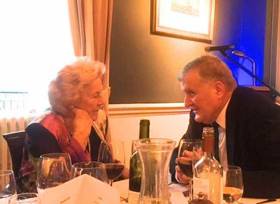Displaying items by tag: Carmel Winklemann
Fifty years of enthusiastic service to Irish and international sailing were celebrated in the National Yacht Club at the weekend with a two day event to mark the Golden Jubilee of the Junior Sailing Section in the club writes W M Nixon.
In fact, Carmel Winkelmann, the star of the show, has given much more than fifty years of service to our sport. But it just so happens that when Olympic sailor Johnny Hooper persuaded his fellow NYC members in the Autumn of 1966 that they needed to build a class of Optimist dinghies to cater more directly for the encouragement of their junior sailors, it was abundantly clear that the person to steer the new Junior Section through its formative years from 1967 onwards was the forthright, determined and ever-energetic Carmel Winkelmann, who was already a significant presence – and then some – in the club.
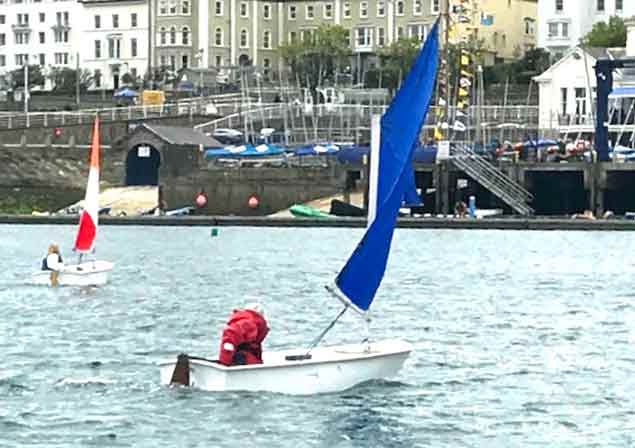 Oppies for ever! Ann Kirwan (left) and Dean McElree racing boats of a type they hadn’t been in for quite some time off the National YC on Sunday
Oppies for ever! Ann Kirwan (left) and Dean McElree racing boats of a type they hadn’t been in for quite some time off the National YC on Sunday
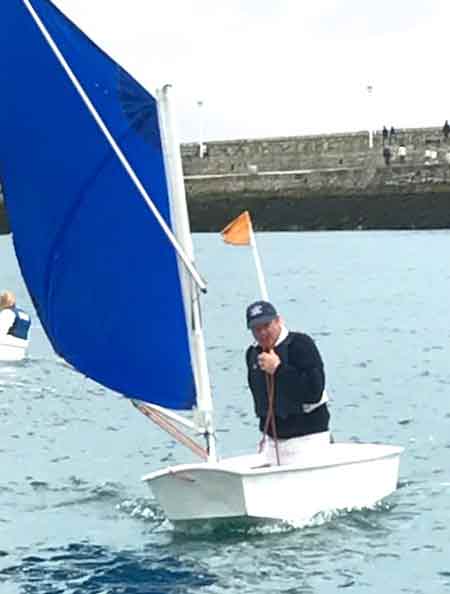 Are the old choppers still up to it? Paddy Boyd re-learning the technique of holding the mainsheet in your teeth.
Are the old choppers still up to it? Paddy Boyd re-learning the technique of holding the mainsheet in your teeth.
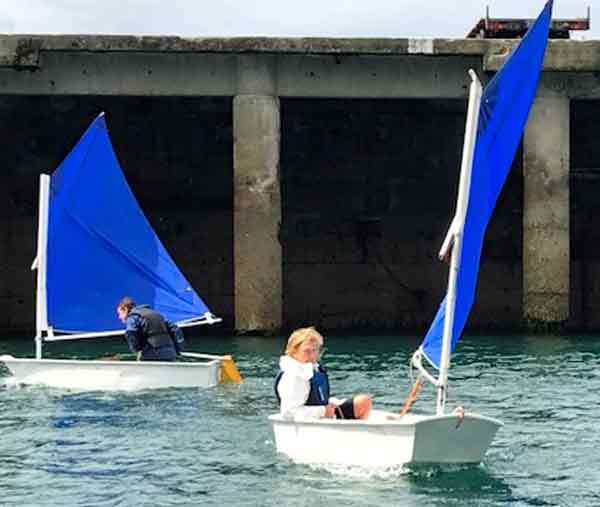 Gordon Douglas (left) and Ann Kirwan settling into some quite serious racing.
Gordon Douglas (left) and Ann Kirwan settling into some quite serious racing.
The result was a programme from which the Junior Sailing Syllabus for the entire country developed and evolved. But time has passed so quickly since, with the National YC and many other clubs seeing their rising young stars encouraged to fresh levels of international success, that there was a danger that the Golden Jubilee of it all at the NYC in May 2017 might simply slip by unnoticed.
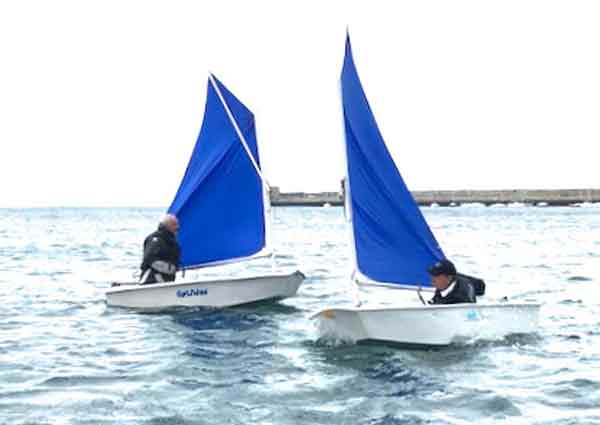 Paul Kirwan (left) and Paddy Boyd (right), with the latter giving every sign of getting the trim just right
Paul Kirwan (left) and Paddy Boyd (right), with the latter giving every sign of getting the trim just right
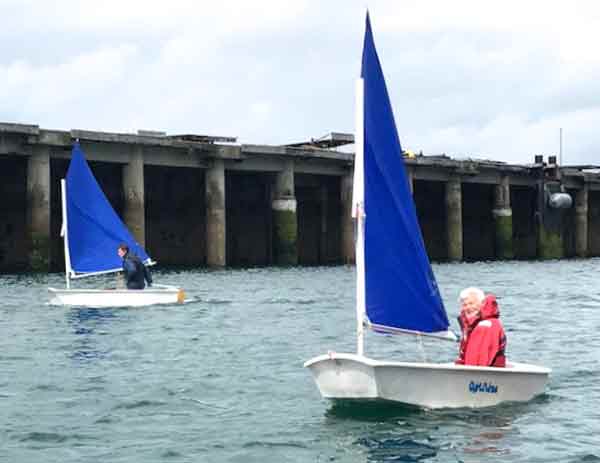 Gordon Douglas left) and Dean McElree
Gordon Douglas left) and Dean McElree
Happily, however, those who benefitted most fully from their time in the programme over the years as it has been reeled out season after season, people such as Ann Kirwan and Paddy Boyd, were keen that the Golden Jubilee should be given total turbo-power, with the Person of Honour (for you can’t be a Guest of Honour in your own beloved club) being Carmel Winkelmann herself.
With the encouragement of NYC Commodore Ronan Beirne, they set up a fun-filled celebratory dinner last Saturday night which attracted an impressive range of “graduates” from over the years. Most heartening of all, the gathering included some keen young people who had emerged from some of the most recent batches, which was inter-generational enthusiasm of a high order.
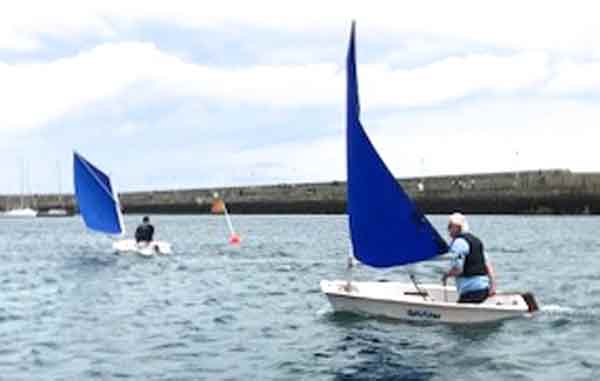 Paddy Boyd and Michael Horgan Jnr with a bit of bite to the breeze
Paddy Boyd and Michael Horgan Jnr with a bit of bite to the breeze
Carmel herself made a marvellous no-holds-barred speech to set the tone of the evening and night. And then on Sunday, an eclectic collection of graduates – some from a very long time ago indeed – gathered to race in a brisk enough breeze in trainee Optimists (quite a tight fit in some cases) generously provided by Alistair Rumball of the Irish National Sailing School.
And the result? Everybody won. It’s as simple as that.
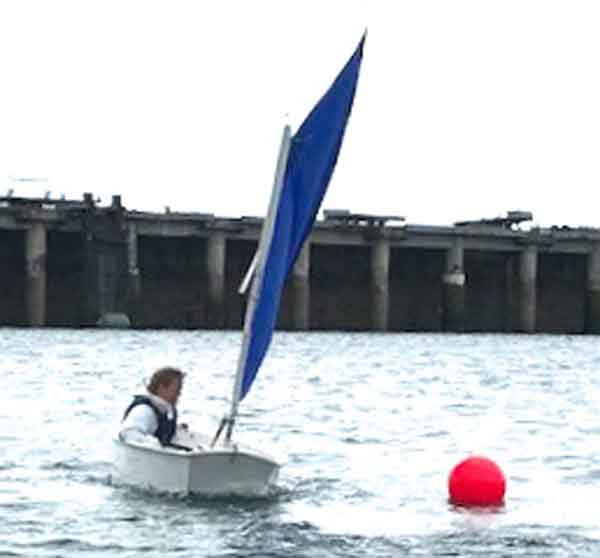 Ann Kirwan comes to the weather mark, well settled back into Optimist racing by this stage
Ann Kirwan comes to the weather mark, well settled back into Optimist racing by this stage



























